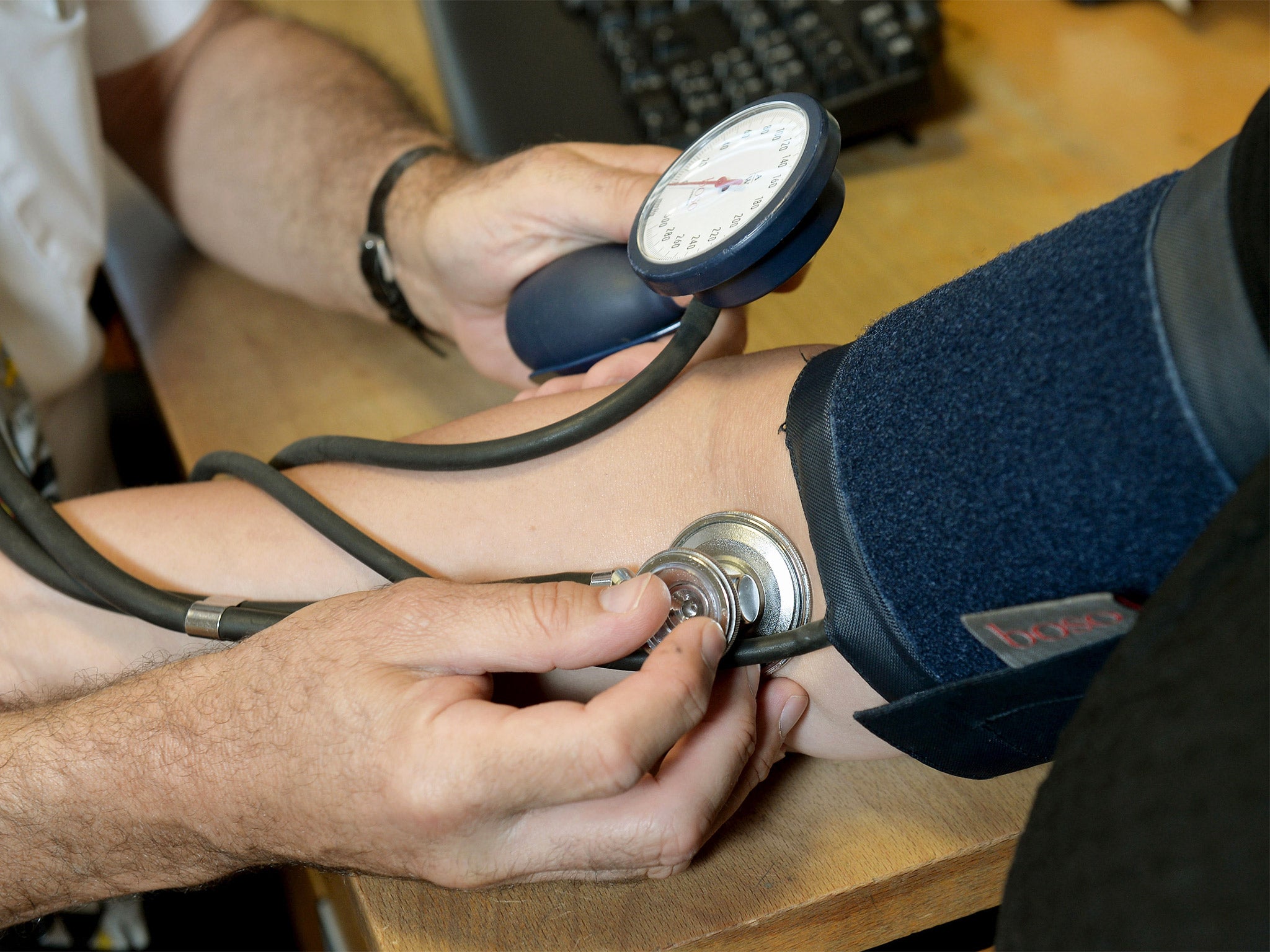What causes high blood pressure? The risks and treatment
The condition is rife among Brits but what actually causes it?

Your support helps us to tell the story
From reproductive rights to climate change to Big Tech, The Independent is on the ground when the story is developing. Whether it's investigating the financials of Elon Musk's pro-Trump PAC or producing our latest documentary, 'The A Word', which shines a light on the American women fighting for reproductive rights, we know how important it is to parse out the facts from the messaging.
At such a critical moment in US history, we need reporters on the ground. Your donation allows us to keep sending journalists to speak to both sides of the story.
The Independent is trusted by Americans across the entire political spectrum. And unlike many other quality news outlets, we choose not to lock Americans out of our reporting and analysis with paywalls. We believe quality journalism should be available to everyone, paid for by those who can afford it.
Your support makes all the difference.With links to the most common diseases and health conditions, such as heart disease, strokes, kidney disease and vascular dementia, high blood pressure has a huge influence on the health of the country.
In fact, around one in three adults in the UK has high blood pressure, half of which are not diagnosed or receiving treatment, according to Blood Pressure UK.
High blood pressure – or hypertension – is also the third biggest risk factor for disease and disability in England after smoking and poor diet. It costs the NHS an estimated £2.1 billion every year.
The depressing facts and figures go on but what actually is blood pressure and what causes it?
Blood pressure is measured by two numbers: systolic pressure (the higher number) is the force your heart pumps blood around the body and diastolic pressure (the lower number) is the resistance to your blood flow in the blood vessels.
The ideal blood pressure is considered to fall between 90/60mmHg and 120/80mmHg, according to NHS Choices.
What causes high blood pressure?
The subject of constant scientific research, high blood pressure has been linked to all sorts of lifestyle choices over the years, including smoking cannabis, excessive internet use, living under a flight path and eating potatoes.
It’s not always certain what causes high blood pressure but certain aspects of an unhealthy lifestyle can increase your risk, such as:
- Being overweight or obese
- Consuming too much salt or not eating enough fruit and vegetables
- Not getting sufficient exercise
- Drinking too much alcohol or too many caffeinated soft drinks
- Smoking
- Not getting enough sleep
That lifestyle profile may sound like it accounts for a considerable portion of the British public, but it’s not too late – making healthy choices can reduce your blood pressure and diminish the risk of its reaching dangerously high levels.
Other factors that are out of your control can also play a part, including being over 65, having a relative with high blood pressure or being of African or Caribbean descent.
Apart from switching to a healthier lifestyle, there is a wide range of medication that can be prescribed to treat the condition by your doctor.
It’s not all doom and gloom though because a 2012 study famously concluded that chocolate can actually help to lower blood pressure, which is particularly good news for any one with a sweet tooth.
The research found that daily consumption of dark chocolate or cocoa powder caused a slight reduction in blood pressure readings. Just don’t use those findings as an excuse to go chocolate mad!
Pregnant women
High blood pressure is also quite common among pregnant women. If a pregnant woman develops high blood pressure during their pregnancy, it can affect the health of the baby, so it is recommended they get it checked out as often as possible.
The same healthy lifestyle advice applies to reducing the risk for pregnant women, but those over the age of 40, those with a Body Mass Index (BMI) higher than 35 or those who have left a 10-year gap since their last pregnancy, are deemed to be at greater risk.
The higher the blood pressure, the more likely the doctor will opt to induce the birth early or consider a caesarean section.
Low blood pressure
It’s not good to have too low blood pressure, either. Even though this can occur simply because you are fit and healthy, it can cause you to faint, feel weak, lightheaded or dizzy and experience blurred vision.
If you feel these kind of symptoms when you stand up or suddenly change position, then you may have low blood pressure.
Aside from being physically healthy, low blood pressure can also be brought on by pregnancy, taking some types of medication and having medical conditions like diabetes.
All adults over 40 are advised to have their blood pressure checked by a GP at least every five years, so don’t hesitate.



Join our commenting forum
Join thought-provoking conversations, follow other Independent readers and see their replies
Comments